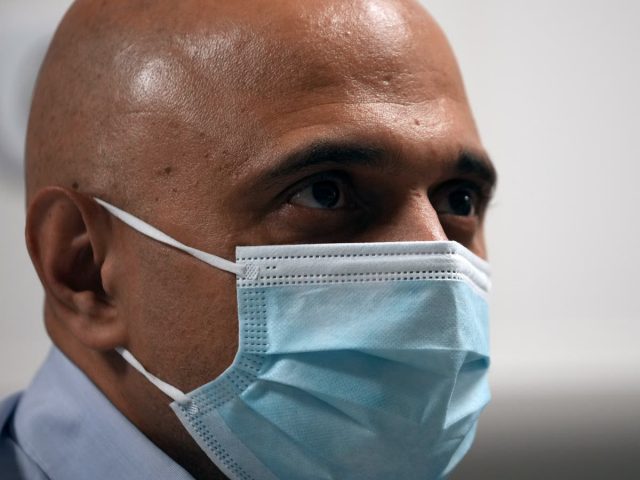independent– Health secretary Sajid Javid has expressed alarm at the rising numbers of people suffering long Covid symptoms, telling a private meeting of health officials that the problem was “huge” and “getting bigger”.
The meeting was given an update on long Covid treatment, with NHS England bosses revealing 10 per cent of all clinic appointments were being taken up by NHS staff in a sign of the potential longer term impact of coronavirus and the risk it could undermine already depleted staffing levels.
NHS staff are most likely to be affected by long Covid, followed by staff in social care and teachers. As many as 125,000 NHS staff may be affected by persistent symptoms.
Public Health England has faced criticism over its guidance for NHS staff which suggested most should wear only basic surgical masks instead of higher grade masks to guard against airborne spread. Some NHS trusts have ignored the rules amid concern staff were being put at increased risk.
The meeting also heard that patients getting appointments at long Covid clinics were disproportionately white, with just under a fifth coming from the most deprived communities. This is despite infection levels overall being highest in these areas.
The latest data from the Office for National Statistics (ONS) this week revealed more than 1.1 million people were now reporting lasting symptoms from a Covid-19 infection, with 405,000 suffering its effects for more than a year.
The ONS found 211,000 people had reported their ability to carry out daily activities was being significantly affected by the condition.
Concerns over the potential impact of long Covid is rising in Whitehall as some officials fear the impact on the NHS and the wider economy. Patient groups have reported long delays in being seen, with some criticising doctors for not believing their symptoms.
At a roundtable update at the end of September, Mr Javid heard details from statisticians at the ONS setting out the scale of the problem and the wider prevalence of cases.
There were also “hideous” stories from two long Covid patients who urged the health secretary to do more.
Sources who attended the meeting said the minister highlighted “the new challenge” posed by the condition and that experts were still having to learn about it and understand what exactly it is.
After being told the latest estimates of people suffering for more than a year, the secretary of state said: “That’s huge. The numbers are only getting bigger.”
He urged those on the call from the Department of Health and Social Care and the NHS to listen to patient experiences as “we’re the ones that can do something”.
He described long Covid as a “hugely important topic” facing the government and said new health minister Maria Caulfield, a former nurse, would be leading the response.
Mr Javid told the meeting there was still a lack of consensus on what exactly long Covid was and how to measure it.
He also said the vaccination rollout to school children was an important step in protecting some youngsters as many would be unable to avoid being infected at some stage.
Cathy Hassell, director of clinical policy, quality and operations at NHS England, told the meeting the health service had achieved five of its 10 long Covid targets and now had every part of the country served by at least one dedicated clinic.
She said the number of appointments at clinics taken up by NHS staff was “disproportionately high” and work was going on to make sure affected NHS staff had access to specialist mental health hubs, occupational health service and rapid referral to the long Covid clinics.
The meeting was told that around 6,000 referrals were being made in each four-week period, with 4,000 specialist assessments and 5,000 follow-up appointments a month.
The meeting heard more action was needed to increase referrals as the numbers coming forward for help were much smaller than the levels of people reporting problems to the ONS. A new enhanced GP service has gone live this month which may help direct more patients to clinics.
Another concern was the demographics of those using the clinics. The meeting was told 63 per cent accessing the service were women, and 81 per cent were white. Only 17 per cent were from the most deprived areas.
This could mean ethnic minorities and people in the poorest areas, which were worst hit by the Covid pandemic, are not accessing help from the long Covid clinics.
The NHS has invested £125m in setting up clinics and providing better GP care for patients with lasting symptoms.
An NHS England spokesperson said: “The NHS is taking practical action to help patients suffering ongoing health issues as a result of coronavirus – bringing together experts and setting up 90 specialist clinics covering the whole country, as well as collecting and publishing data on the demographics of patients referred with long Covid to develop a greater understanding of this new condition.
“Anyone who is concerned about long-lasting symptoms following Covid-19 should continue to get in touch with their GP practice so they can get a referral or go online to the NHS ‘Your Covid Recovery’ website for further advice.”







